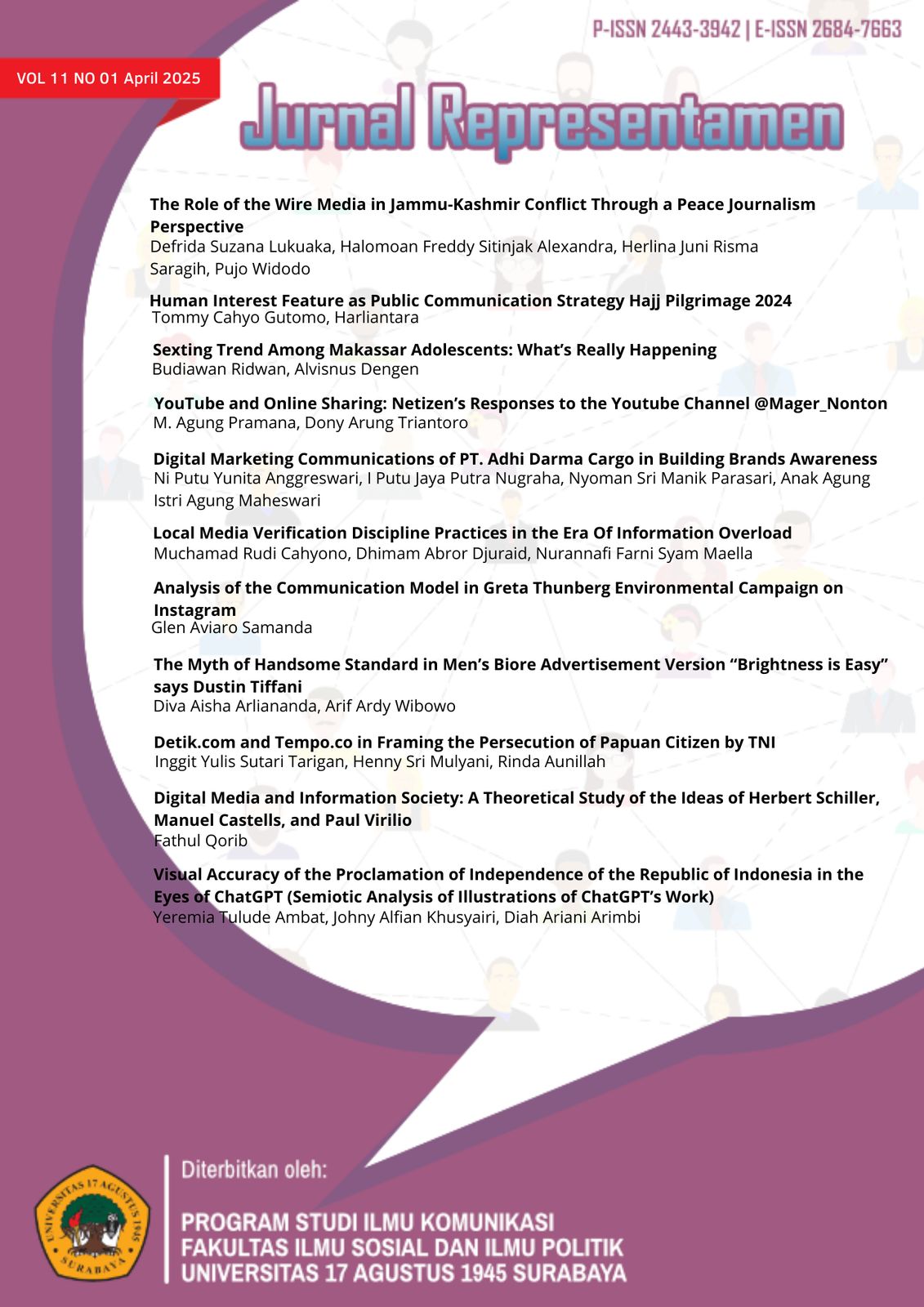Analysis of the Communication Model in Greta Thunberg Environmental Campaign on Instagram
(A Study of Aristotle's Rhetoric in the Digital Era)
DOI:
https://doi.org/10.30996/representamen.v11i01.12251Abstract
This study examines the communication model in Greta Thunberg’s environmental campaign on Instagram using Aristotle’s rhetorical approach: ethos, pathos, and logos. The research explores how Greta builds credibility as an activist (ethos), engages audience emotions to raise awareness (pathos), and strengthens her arguments with scientific data (logos). A library research content analysis of selected posts from @Gretathunberg identifies communication patterns in her digital campaign. Findings indicate that Greta effectively utilizes Instagram as a persuasive communication tool. Ethos is built through her global recognition as a young activist. Pathos is evident in emotional language, strong metaphors, and urgent calls to action, while logos is reinforced through scientific evidence and expert references. Instagram’s visual and interactive features enhance message dissemination, enabling audiences to actively engage, share content, and participate in discussions rather than being passive recipients. This study concludes that Aristotle’s rhetorical theory remains highly relevant in digital communication. Through a strategic combination of ethos, pathos, and logos, Greta Thunberg successfully mobilizes a global movement, raising public awareness and driving participation in climate action. Keywords: Rhetoric, Instagram, Campaign, Social Media, ActivismDownloads
Downloads
Published
Issue
Section
License
Authors whose manuscript is published will approve the following provisions:
The right to publication of all journal material published on the jurnal representamen website is held by the editorial board with the author's knowledge (moral rights remain the property of the author).
The formal legal provisions for access to digital articles of this electronic journal are subject to the terms of the Creative Commons Attribution-ShareAlike (CC BY-SA) license, which means Jurnal Representamen reserves the right to store, modify the format, administer in database, maintain and publish articles without requesting permission from the Author as long as it keeps the Author's name as the owner of Copyright.
Printed and electronic published manuscripts are open access for educational, research and library purposes. In addition to these objectives, the editorial board shall not be liable for violations of copyright law.











